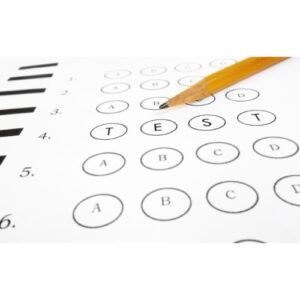
Many countries throughout the world use national benchmarks to grade students and establish tests for evaluating academic knowledge. In the United States, standardized testing has become more about ranking schools and even teachers. Although common studying is done to prepare for tests known as the SAT or ACT, law students may not have to take the LSAT to secure their future.
On November 18, 2022, the American Bar Association (ABA) voted to no longer use the Law School Admissions Test (LSAT) for admission to law programs nationwide. Law schools will be able to become test-optional as soon as fall 2025 if the ABA House of Delegates passes this bill. The current decision comes after an extended debate about how the LSAT requirement influences admission to law schools and legal professions for a broad group of individuals.
According to the ABA, critics believe that the LSAT requirement serves as a barrier to acceptance for disadvantaged students, while supporters argue that the exam serves as an equal opportunity for students of all socioeconomic backgrounds to differentiate themselves in law school admissions.
Laura Carrera, a student at FAMU College of Law, said the exam was nothing but a hurdle.
“I got into law school solely based on my grades and my test score was relatively low. For a student like me who works during college, the LSAT was costly, time-consuming, and proved to be relatively useless in law school. I think certain exams are made with an ideal candidate in mind and a bilingual immigrant did not fit the mold,” Carrera said.
The average exam score for white and Asian test takers is 153, while the average for Black test takers is 142, and 146 for Latinos, according to research by executive director of AccessLex, Aaron Taylor.
Multicultural education is important to have in a professional workspace. Working with people from many cultures and social groups has become more crucial with the growth of globalization. Students are better prepared to succeed in the workforce if they are exposed to diversity and learn about different cultures in the classroom.
Attorney, Joan Clay, says the LSAT was never a good indicator of whether or not a person would do well in law school or more importantly, a successful lawyer.
“ If you didn’t test well on the LSAT, first and second-tier law schools wouldn’t admit you. The entire process makes no sense. I went to a fourth-tier law school. Today I have my own practice for 19 years and run a new successful non-profit organization,” Clay said.
While numerous institutions switched to test-optional admissions policies to meet the needs of applicants during the COVID-19 pandemic, the movement away from requiring standardized test scores has reached record highs and may continue to be the dominant policy across the country even after the pandemic’s threats have passed.
According to Forbes.com, a report released this month by the National Center for Fair & Open Testing, at least 1,835 colleges and institutions currently have either ACT/SAT-optional or test-blind/score-free policies.
For more information on the LSAT visit www.lsac.org/jd/lsat.